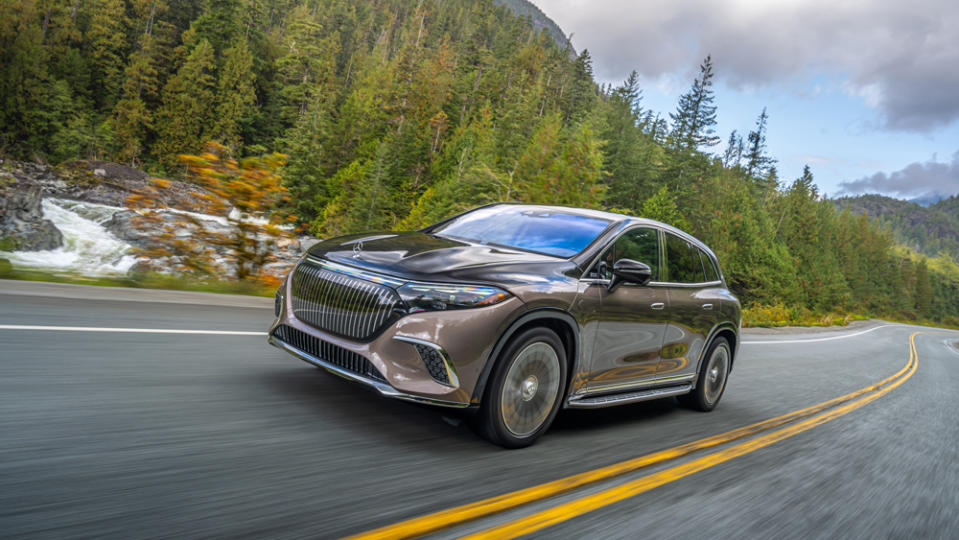Mercedes Won’t Go All-Electric by 2030 as It Once Promised

Mercedes-Benz is pumping the brakes on its electrification strategy.
The Germany luxury marque is pushing back its plans to go all-electric by 2030, according to Reuters. The company also wants everyone (but, specifically, investors) to know that it will continue to build vehicles with combustion engines well into the next decade.
More from Robb Report
Ford's 1400 HP Electric SuperVan Keeps Setting New Speed Records
Mercedes Is Launching Its Ultra-Luxury Mythos Series With a Roadster
Cybertrucks Aren't Rusting, It's 'Surface Contamination,' Tesla Engineer Says
Back in 2021, Mercedes, like so many of its peers, was feeling pretty good about the future of the EV. That year, the company committed €40 billion, about $43 billion, to a strategy that would see it phase out the combustion engine so that it was only selling EVs by the end of the decade. The plan was ambitious but seemed doable for a company that was launching the EQ lineup, which was made up solely of EVs. It was also a sensible proposal considering the E.U. had announced that it would ban the sales of new gas and diesel vehicles by 2035.

The blueprint Mercedes laid out three years ago predicted that half the vehicles the company sold would be electrified, meaning EVs or hybrids, by 2025. That goal has now been pushed back five years to 2030, according to the financial news wire. It’s easy to see why the automaker no longer feels so bullish. Fully battery-powered vehicles only accounted for 11 percent of the company’s sales in 2023, and that figure only grows to 19 percent if you include hybrids.
It’s also clear that the plan to phase out purely gas- and diesel-powered cars is on hold for the time being. CEO Ola Kaellenius, who began planting the seeds of Thursday’s announcement late last year, said the brand remains committed to combustion engines. The executive said that the marque is working on updates of these vehicles, elaborating that, “It is almost like we will have a new lineup in 2027 that will take us well into the 2030s.”
Mercedes’s change of course, however major or minor it ends up being, shouldn’t come as much of a surprise. Over the last year, it has become clear that the industry is concerned by weakening demand for EVs in the U.S. and Europe. Companies like Ford and General Motors have also announced adjustments to their electrification plans. Thursday’s news already seems to be appeasing investors. In the hours immediately following the announcement, as well as news of a $3.2 billion share buyback, Mercedes’s stock price rose by more than five percent.
Best of Robb Report
Sign up for Robb Report's Newsletter. For the latest news, follow us on Facebook, Twitter, and Instagram.


